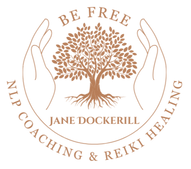
Frequently asked questions
What is NLP?
Neuro Linguistic Programming (NLP) is a science of how the brain processes learning and experience. It uses a series of behavioural and communication techniques to help people find new ways of changing their perception of the world and the way they move through it. In a nutshell, it stops your past experiences informing your future decisions. NLP can be used to work through a diverse range of issues, from eliminating the limiting beliefs we hold within ourselves, to helping with phobias, anxiety and the way we receive messages from others. The technique was developed in 1972 by John Grinder and Richard Bandler.
How can it help me?
An NLP coach will encourage clients to transform limiting self-beliefs and move out of their comfort zones. Breaking barriers and taking chances only helps to develop a fuller, happier and infinitely more satisfying life: NLP can teach you how to reframe your view of the world by giving different meaning to behaviours and situations, changing how you look at life and deal with difficulties.
What’s the difference between life coaching and counselling?
In very basic terms, counselling looks at the past, whilst life coaching looks at the future. Take a look at my blog on the subject HERE.
What’s a limiting belief?
Limiting beliefs are another name for the stories we tell ourselves, the ones that stop us living the fulfilled lives we truly deserve. NLP can help you dismantle these beliefs and reframe the way we look at ourselves and the way we progress through life.
What results can I expect?
Coaching results are different for every client I work with, and are entirely based on what you want to achieve in our sessions. Take a look at how I’ve helped some of my past clients HERE.
How many sessions will I need?
There’s no exact science to how many sessions each individual may need, although for life coaching there is a minimum commitment of five sessions. Find out more about how Jane works with you to achieve your goals HERE.
